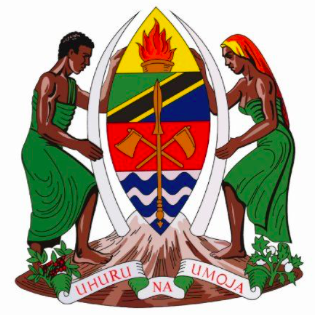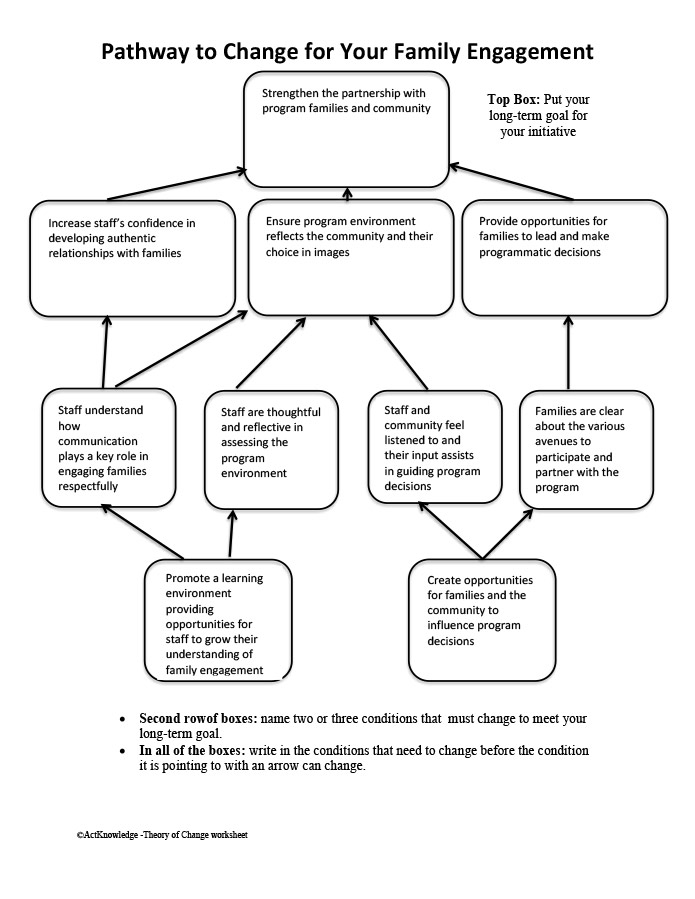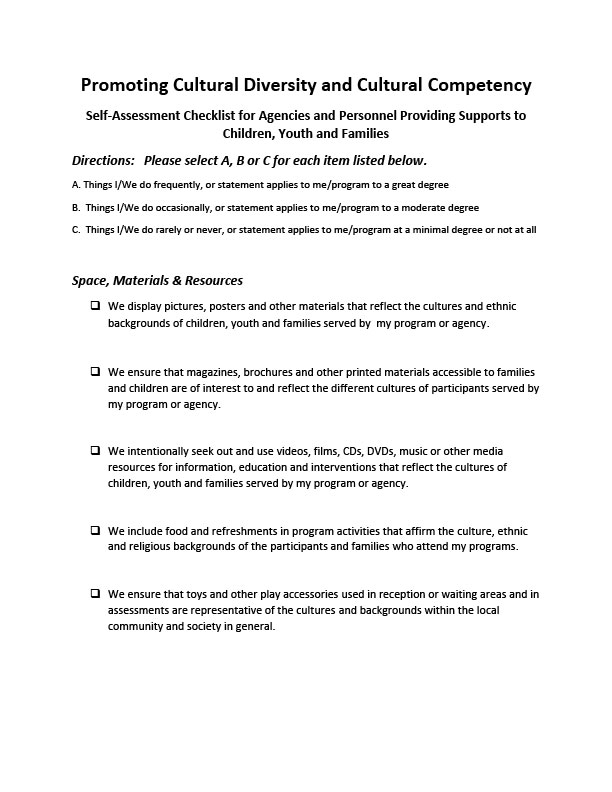DYCD programs communicate with families in a variety of ways, understanding that families have a variety of needs and schedules. Communication between staff and families occurs through daily hellos and goodbyes, informal check-ins, formal activities, printed materials, and social media platforms. When communicating with families, we must be aware of the cultural differences that exist and influence communication styles and preferences. Respect for cultural differences can create bridges for effective communication and engagement.
Staff can also build trust through respectful and culturally appropriate nonverbal communication. Signals given through facial expressions, gestures, eye contact, posture, tone of voice, and use of physical space tell participants whether or not you care if you are being truthful, and how well you are listening. Attractive and comfortable program spaces will also communicate the message that participants are welcomed.
The strategies below will help inform the ways in which programs can support families:
- Create intentional strategies to promote a welcoming and respectful environment
- Provide regular opportunities using multiple methods for information sharing with families
- Commit to making sure communication is accessible to all and honors the diversity of families
- Place relationship and community building at the center of all interactions with families
- Provide links to community resources that support youth development and strengthen families
Getting Started: Relationships, Trust, and Connectedness
How we view families informs how we communicate and interact with them. Do we view families as assets and resources or as liabilities within our programs? If we approach families from a strengths-based, asset-rich perspective, we will be more successful in engaging them as partners.
Establishing positive and trusting relationships with families takes time and must be nurtured. Start with identifying the most meaningful individual in the participant’s life. This individual may be part of the family of origin (mother, father, older sibling, aunt, uncle, grandparent, cousin) or family of choice (neighbor, counselor, teacher, clergy, friend, program staff).
Creating New Pathways Flip Grid Empower Every Voice Flip Grid (https://info.flipgrid.com) is a platform that would allow families and the Community -Based Organization to voice their perspective and share information with each other. Try other ways to engage and listen to families that allows for transparency and honest dialogue. This platform will support the partnership with families and hearing from a variety of voices. Flipgrid is a simple, free, and accessible video discussion experience for learners and families. Start a discussion and engage your community...together! Click this link to access slides to help walk you through signing up and utilizing Flip Grid with your families and community.
Engage participants in defining their families













